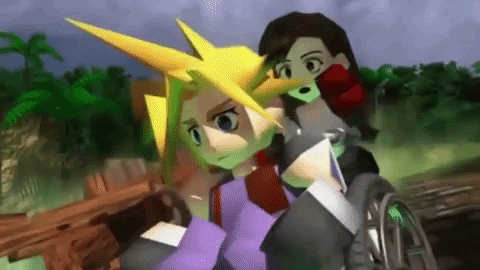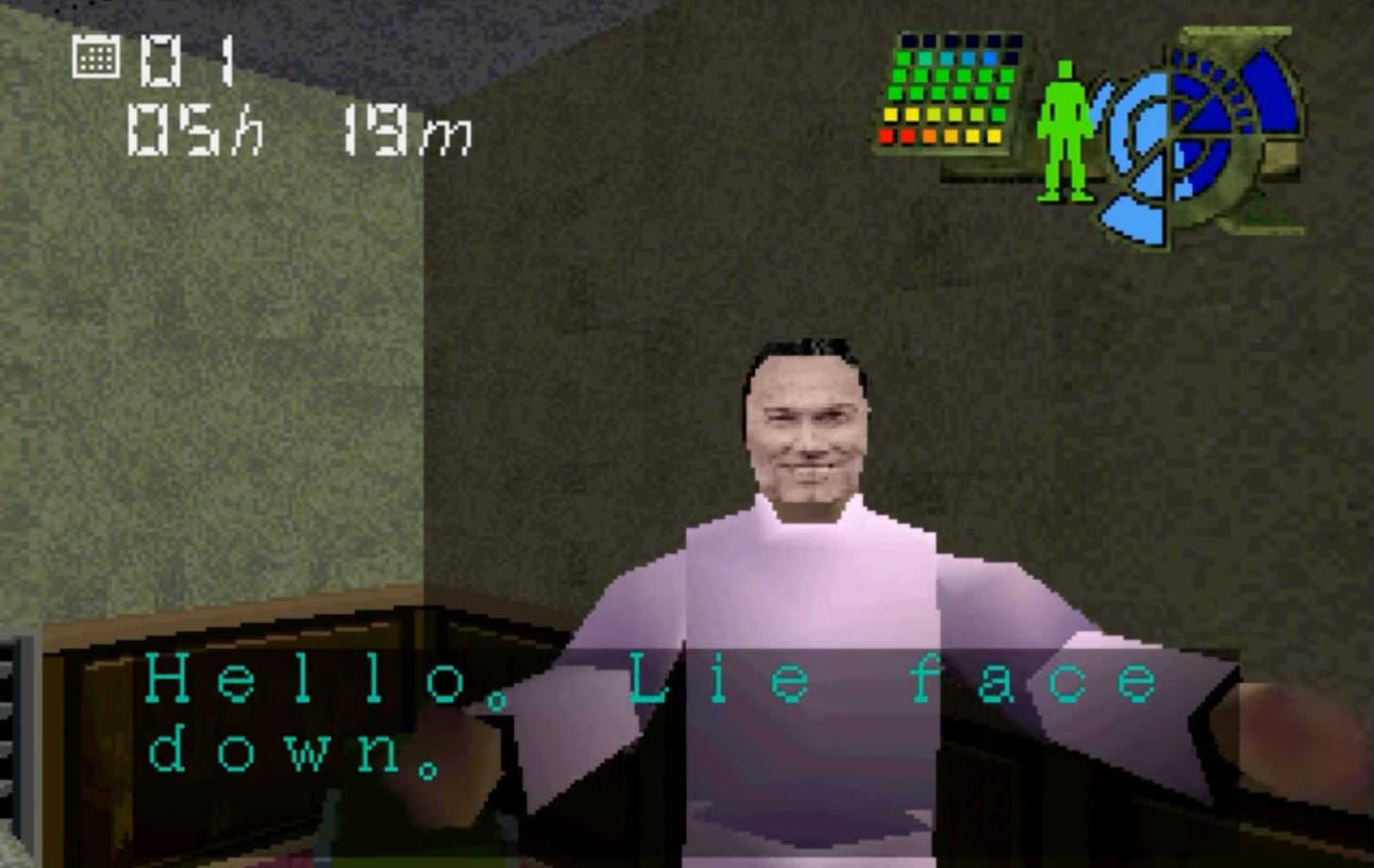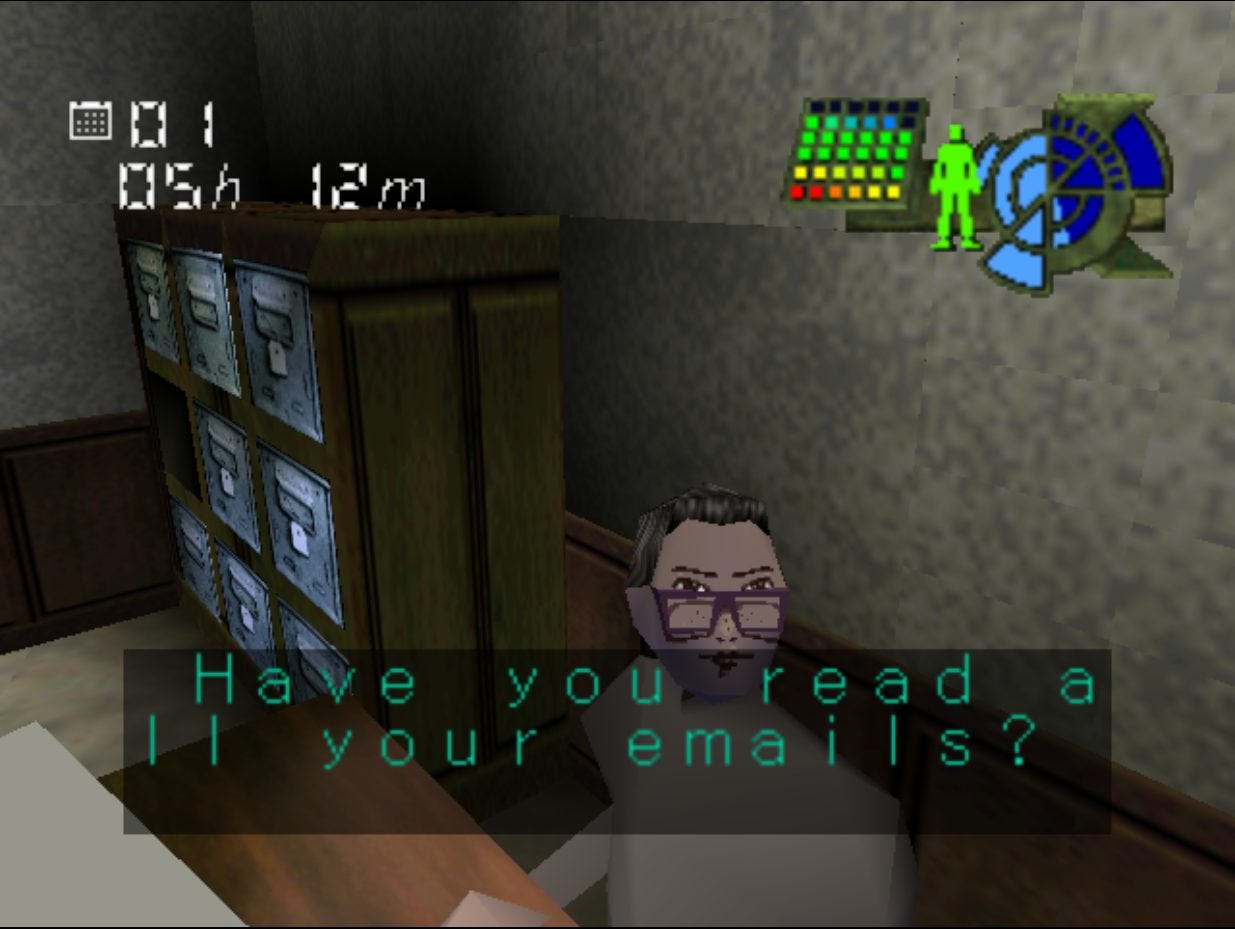Navigating the Nightmare: Germs Nerawareta Machi and the Horror of Transformation.
The call is coming from inside the house.

My dreams are not of labor. In the first half of my life, you could find me in the midst of your local Holiday Inn ballroom job fair. Poised in thrift store suits and a Bluetooth earpiece, the overly-eagerness of pseudo-professionalism wafted off me along with the smell of magazine cologne samples. This was my theater, the only place where a firm handshake and a parodied cadence of Leonardo DiCaprio's overrated portrayal of Jordan Belfort might break my stint of surviving on peanut butter and marshmallow fluff sandwiches.
When that era of my life ended, it came at the hands of landing the "dream job." The career where all your hard work climaxes. The occupation that made me believe a retirement fund was a real thing and not just an extra charge on my paycheck. While the salary wasn't a dream, nobody bothered me, making it worth more than gold. In those five years, I felt as if I had figured it all out. Everything I sacrificed was repaid to me with a career that astounded my peers and struck envy into strangers. That was until a lightning bolt of stress shocked my nervous system upon receiving a 30-minute HR calendar request on an average Wednesday. This meeting would become the first tremor in an earthquake of transformation I never saw coming.
Fast forward an hour, and there I was, staring down an HR administrator as they feigned tears on my behalf. They explained that my entire department would be laid off due to "upstream decisions", and we would be forced to exit all accounts by the close of business. In that moment, something fundamental shattered inside me. The careful architecture of identity I had built around my professional achievement collapsed with surgical precision. What remained was a person separated by the death of an illusion.
I. The Rebellion of Form

The next morning arrived carrying the weight of a transformed nervous system. My mind clouded with anxiety navigating the most simplistic tasks as a self I no longer recognized. Taking our puppy out for a walk became an exercise in negotiating with flesh that had declared independence from conscious will. The simple act of manipulating a glass of water required treaties with hands that trembled like leaves in the wind. Stress manifested as electrical storms beneath my skin, currents of panic that traveled through my chest with acute precision. In the recess of night, my eyes traced ceiling patterns like constellations in an alien sky, hoping to find coordinates back to the person I used to be. Sleep, when it finally arrived, brought night terrors that attached themselves to peace like parasites, sending my heart rate racing back into incapacitating pain.
Something had to give.
Self-medication became a ritual of desperate negotiation with my rebelling body. A couple Bayer aspirins in the morning, small white promises that pain could be managed through chemistry. Stress gummy vitamins after breakfast, artificial sweetness coating the metallic taste of terror that persisted in my mouth. Herbal teas for lunch, each sip in attempt to convince my nervous system to calm. Every intervention a prayer to flesh that had forgotten how to home a consciousness, and all to no avail, leading me to seek professional guidance in deciphering my blight.
Lying on that examination table, electrodes affixed to my bare skin felt like communion wafers of a technological religion. The doctor's words landed with the weight of revelation: it was possible that I was in more need of a psychologist than a physician. She insisted that if we couldn't bring my stress under control, things would become tumultuous, as if they weren't already?
Doctor's orders? Relax. But, how? I had lost my career and my body was fighting for survival in a war I couldn't comprehend. But within this dissolution lay something unexpected: time. Time to tackle projects that had waited patiently in the shadows of professional urgency. Time to consider experiences I had postponed in offerings to my pride and productivity. I saw my doctor's diagnosis as permission to return gaming for my health, a prescription more enjoyable than any previous pharmaceutical intervention. Hence, I proceeded into my backlog, searching for something paradoxical, art that could mirror my own despair. Instead, I discovered a meditation on the nature of existence, a digital dimension that would exchange psychological dissolution for conscious enlightenment inside: “GERMS: Nerawareta Machi.” (1999).
II. A Manifestation of Desolation

Upon booting up my MiSTer1, hesitation crystallized in my chest like ice forming in still water. From the screenshots GERMS seemed to be dread in a metaphysical form, as the start screen appeared the title geometrically shape shifted parasitically heightening the apprehension. Nevertheless, I began. Abruptly, I materialized into dejected polygonal office, as a human shaped object with an illustrated face poising as my assistant asked, “Have you read all your emails?” The entity’s foreboding nature compelled me to flee it’s presence and interact with the in-game computer, which provided context that felt less like exposition and more like diagnosis. I was an unidentified reporter tasked to investigate the appearance of an unidentified virus inspiring cellular disbandment and mutant amalgamation within this unidentified city’s residents. So I hit the streets.
When I first entered the monochromatic tomb that is "City" inside GERMS’ game world, it felt like stepping into the digital manifestation of existential dread. It’s empty streets served as silent testimony to the catastrophic events that had transpired. The haunting silence punctuated only by esoteric looping audio fragments, a stark absence of existence where life should be only amplified the overwhelming sense of desolation. The game had ingeniously propelled me into my first uncomfortable, but intimate moment with self-reflection.
In a way, GERMS constructs its open world not as a playground of possibility, but as a void of meaning. Every street corner whispered the same terrible fourth wall breaking question: Where are you really? The game presented this raw terror of existing in a universe that offers no inherent purpose, no predetermined path, a terror I had been living with since my professional identity had been amputated from my sense of self.
The City’s lack of interactivity, wasn't a weakness to be overlooked. It emphasized it’s intentional confrontations with the void, a digital representation of the spaces between thoughts where anxiety breeds. Without the constant stimulation of densely packed content in a game world, I was left alone with my own growing unease. I was experiencing the profound loneliness of consciousness awakening to its own isolation, its own insignificance in the face of forces beyond comprehension or control. The NPCs, which only existed indoors, exclaimed their fears into the void only as a means for me to construct more of the plot, before their bodies decomposed or transformed before my eyes. In this respect, GERMS effortlessly revealed the cold fact that I was not a hero in it’s world, I had arrived here to witness and participate in my personal demise or observe transformation.
Introspection swelled. I dedicated much of my professional life to sculpting a persona that would validate my occupational achievements. Using my career as a power fantasy, I constructed meaning from my struggle, fashioning mental armor from the embers of “bootstraps heroic pride.” But now I had lost my dream job, my personal power fantasy, and in parallel, GERMS had simultaneously prohibited me from applying any indomitable persona onto this silent protagonist. Rather than conventional 90’s video game power fantasy stereotypes, GERMS shrugged at my spiraling and alternatively offered existential insignificance.
There I was. In constant contention with the task of admitting defeat and entombing the persona that had delivered me from that peanut butter sandwich diet.
There I was. Suffering from incapacitating stress pains, that felt like I was combating against my own body.
There I was. Empathizing with GERM’S NPCs that had fallen victim to a comparable existential and body-horror induced sabotage.
III. The Betrayal of Flesh
By the arrival of my third boss encounter, I had become intimate with expletive outbursts regarding the game's controls, a relationship that felt less like "gamer rage" and more like arguing with my own nervous system. GERMS' movement is often criticized and dismissed as technical incompetence, but as my hands trembled from stress, wrestling with the controls, I recognized something profound. What if this clumsiness isn't a flaw, rather, the most honest representation of embodied human existence programmed into a game?
Every moment of struggle with the interface began to mirror the internal battle I'd faced for weeks. As the game resisted my desperation for control something clicked into place with the weight of revelation. The control scheme wasn't punishing me, it was embodying the terror of losing agency over our own bodies, our own lives, our own narratives. This concept is most apparent in the unsettling infection system. Upon succumbing to certain enemies, you don't simply receive a "Game Over." Instead, your character takes on mutated characteristics. Transformations that aren't merely cosmetic changes, but profound reversals of how the protagonist exists and controls within the world. I recognized the infection system as more than a game mechanic. Rather, a representation of how trauma rewrites the self at the cellular level. A direct illustration of my consciousness rebelling against the flesh, leaving me with a body that no longer obeyed, a mind that no longer served, an identity that no longer cohered to my desires for normalcy. GERMS had programmed all of this into a digital form, making empathy almost mechanical.
The virus in GERMS and my consciousness were operating by identical logic; both required change from within, both made the familiar foreign, both demanded surrender to processes beyond conscious control. But where my real-world transformation felt chaotic and meaningless, the game's infection system revealed transformation as a process with its own intelligence, its own patterns, its own terrible beauty. And since I had already lost control of my professional identity, my physical stability, and my emotional equilibrium, I decided for the first time in ten plus years, to give in. Transform, and accept the change.
IV. Making a Monster
In the final hours of GERMS, I came face to face with an onslaught of cosmic figures, mutated humans that had accepted consciousness transformation and were seeking to transcend our corporeal dimension. These beings had embraced the virus not as illness but as understanding, as evolution beyond the limitations that had trapped them in familiar forms of suffering. However, as the protagonist, I had traveled to this adventure’s end with the task of eliminating these monsters. A mission that felt increasingly hollow as I recognized in their transformed state something I was beginning to understand about my own process.
Stepping into an underground mine, I encountered a transformed geometric essence that spoke to me unlike any previous entity. However, this wasn't just the end boss fight, it was a confrontation the metaphorical offering of transformation.
It’s gospel penetrated deeper than dialogue: “This world is amazing, your mind can’t process it. After a few lives you’ll understand. I’m your other self. I will beat you and be one again.” It’s words rippled through my consciousness extending far beyond the game's narrative. This entity wasn't threatening annihilation, it was offering integration. An offering to recognize that the self I was trying to preserve was only one configuration of consciousness among infinite possibilities.
There laid the real conflict: not between protagonist and monster, but between the self that clings to familiar forms and the self that embraces transformation as consciousness's natural state. There I understood that my struggle wasn't with layoffs, but with the persona I affixed to an organization whose decisions were beyond my control, inciting my unwillingness to change. However, now I was ready. I had laid my eyes on GERMS’ enlightenment, and yearned to transcend the restraints of my persona imprisonment.
Unfortunately, the protagonist was sent to kill, and so he did.
The screen faded to black, and in that overlaying darkness, a text box delivered a message: “The door to the other dimension is gone. Was it an illusion? Are we free? I don’t know, but something changed. My consciousness is cleansed, but everyday I go to work it feels like it was very real.” Maybe a narrative conclusion? Maybe a therapeutic breakthrough? Just like the beginning, we materialize into a dejected polygonal office, as the human shaped object assistant asked me; “Have you read all your emails?” But this time there were none. A space emptied of its former power that defined the protagonist’s worth, and my own.
V. The True Horror of Becoming
GERMS' cosmic horror influence operates as profound metaphor for all the ways external forces reshape our internal reality. Those intangible powers that humans could never attempt to understand, influence, or much less control. My professional persona had crumbled apart from forces outside my control, and in response, I had fallen deeper into helplessness, thrashing against the whims of cosmic powers only to exhaust and sicken myself further.
After resurfacing back into the protagonist's role of office worker questioning everything but learning nothing initially, I awakened to GERMS' final revelation: conscious transformation demands every cell of your humanity. Not as sacrifice, but as a conduit to a more secure version of one’s self, whether we participate willingly or not.
In its flawed, experimental way, GERMS achieves something that more polished horror experiences often miss, it makes us afraid not of death, but of life itself. Afraid of the relentless process of becoming what life demands. And in that experience, if we're brave enough to truly engage with it, we might discover something unexpected; that the terror of change also contains the possibility of transformation, that the horror of becoming might also be the pathway to growth, to understanding, to a deeper compassion for the shared vulnerability defining human consciousness.
GERMS hadn't just mirrored my crisis, it had catalyzed my recovery by creating a safe space for practicing surrender, understanding identity, and discovering that transformation could be welcomed rather than endured. In that transformation I discovered the destruction of my old persona. The pride I'd built around my consciousness after being accepted to my “dream job” had been pride in successful self-abandonment, a realization that arrived with the clarity of a fever breaking. Days after finishing the game, I noticed my health had returned. I picked back up my hobbies, new opportunities appeared, but work now felt chosen rather than desperate, a transformation that serves life rather than consuming it.
Through digital horror, I discovered something that months of self-medication and medical intervention had failed to express: transformation is a gift rather than a curse, change as consciousness's natural expression rather than it’s enemy. Accepting the dissolution of this mentality had incapacitated my worldview and forced me to fight my own psychological flesh, but finally morph into something new. Something that refuses to allow “upstream decisions” to reshape my consciousness into the real monster, a human shaped object with an illustrated face, asking, “Have you read all your emails?”
Thank you for letting me share my heart with you. We’ll find each other again somewhere in this digital ether. Until then, remember: Drink more water. Love yourself a bit more. And actually play the games you buy.
- BIG PICTURE MODE PLUS+
Dedicated to my wife, our dog, our kitten, and my twenty year old self.
MiSTer (also known as MiSTer FPGA) is an open-source project that aims to recreate various classic computers, game consoles and arcade machines, using modern FPGA-based hardware.[1] It allows software and video game images to run as they would on original hardware, using peripherals such as mice, keyboards, joysticks and other game controllers.










